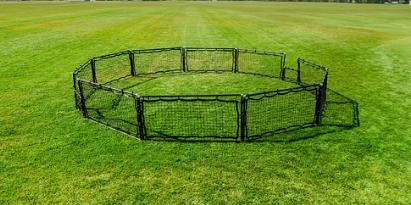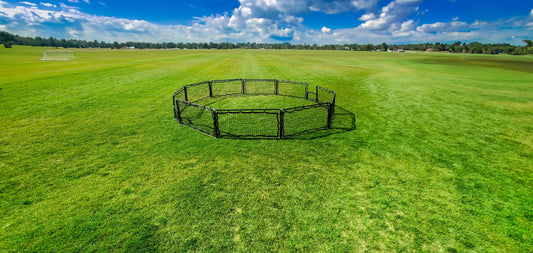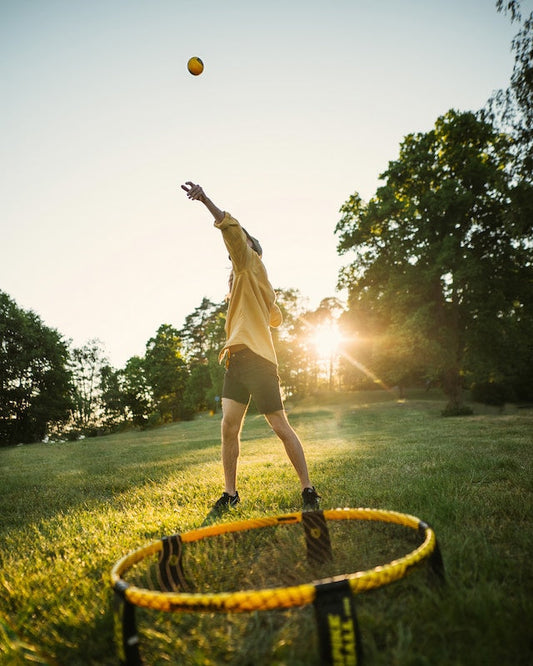Vacation Bible School (VBS) is a type of religious education program typically held during the summer months, often for children and sometimes for adults. It is usually sponsored by a church or a group of churches in a community.

The primary purpose of VBS is to provide an opportunity for participants to learn more about their faith and build a stronger relationship with God. It is designed to be a fun and engaging way for children to learn about the Bible and its teachings through interactive activities, crafts, games, and music.
VBS typically runs for a week, usually for a few hours each day, and focuses on a specific theme or topic related to the Bible. The program may include lessons on key Bible stories and teachings, as well as discussions on Christian values and principles.
In addition to the religious education component, VBS also provides an opportunity for children to socialize and make new friends. It often includes group activities and games, which help to foster a sense of community and belonging.
Adults may also participate in VBS, either as teachers or as volunteers. They may help with organizing activities, leading discussions, or supervising the children.
Overall, VBS is a great way for individuals to deepen their faith and strengthen their connection to their church community. It offers a fun and interactive learning experience that can have a lasting impact on the spiritual lives of participants.
My favorite memories of VBS as a kid was always the group activities and games, whether I was six and participating or sixteen and leading or supervising.
With that said here is a list of my top activities and games from Vacation Bible School
Heads Up Seven Up - Heads Up Seven Up is a classic children's game that is commonly played in schools, summer camps, and other group settings. The game is typically played with a large group of children, but it can also be played with a smaller group. To play Heads Up Seven Up, the children are usually seated in a circle or in rows facing the front of the room. Seven children are selected to come to the front of the room, and each child is given a turn to go around and touch the heads of seven seated children, without revealing their identity. After all seven children have finished, they return to the front of the room, and the seated children are asked to guess which of the seven touched them on the head. If a seated child correctly guesses the person who touched them, they switch places with that person and become one of the seven who stand at the front of the room. The game is typically played for several rounds until all the children have had a chance to participate. It's a fun and interactive way to break up the day and get children moving, while also improving their observation and deduction skills.
9 Square - 9 Square is an outdoor game that is played with a large inflatable or metal frame that is divided into nine smaller squares. Each player stands in their own square, and the objective of the game is to eliminate players from other squares by bouncing a ball into their square. The rules are, Set up the frame and divide into nine squares, with each player standing in their own square. The player in the center square starts the game by bouncing the ball into one of the other squares. The player in that square must hit the ball into another square, and so on. If a player fails to hit the ball into another square, they are eliminated and must leave the game. Variations of the game include adding rules such as no holding the ball or no hitting the ball with the same hand twice in a row.

Red Rover - Red Rover is a classic children's game that is typically played outdoors with a large group of children. The game involves two teams that face each other and take turns calling out members from the opposite team to run over and try to break through their line. To start the game, two teams are formed, with an equal number of players on each team. The teams line up across from each other, usually about 20 feet apart. One team starts by calling out a player from the other team by saying "Red Rover, Red Rover, send (player's name) over!" The player who is called then runs towards the other team's line, and tries to break through the linked arms of two players on that team. If the player is successful in breaking through the line, they get to choose one of the players whose line they broke and bring them back to their team. If the player fails to break through the line, they join the team they tried to break through. The game continues with the teams taking turns calling out players from the other team until all players are on the same team or until one team has all the players. Red Rover is a fun and active game that helps to build teamwork and coordination skills among children. However, due to its physical nature, it is important that proper safety precautions are taken, such as ensuring a safe playing area and teaching children to link arms gently and avoid excessive force.
Duck Duck Goose - Duck Duck Goose is a classic children's game that is typically played outdoors with a group of children. The game involves one player, who is "it", walking around a circle of seated players, tapping each player on the head and calling them "duck". Eventually, the player who is "it" will tap a player on the head and call them "goose", at which point the "goose" must get up and chase the "it" player around the circle in an attempt to tag them before they reach the "goose's" empty spot in the circle. To start the game, the players sit in a circle facing inward. One player is selected to be "it" and starts walking around the circle, tapping each player on the head and saying "duck" each time. Eventually, "it" will tap a player on the head and say "goose" instead. The "goose" then stands up and tries to tag "it" before they can reach the "goose's" empty spot in the circle. If the "goose" tags "it", then "it" becomes the "goose" and the game starts again. If "it" reaches the "goose's" empty spot first, then the "goose" remains "it" for another round. Duck Duck Goose is a fun and simple game that helps to build social skills and promotes physical activity.
Egg And Spoon Race - The egg and spoon race is a classic outdoor game that is often played at parties, picnics, and field days. As its name suggests, the game involves balancing an egg on a spoon and racing to the finish line without dropping it. To play the egg and spoon race, each player is given a spoon and an egg. The players then line up at the starting line, with the finish line usually marked a short distance away. At the start of the race, the players balance their eggs on their spoons and race towards the finish line. If an egg falls off the spoon, the player must stop and pick it up before continuing. The first player to cross the finish line without dropping their egg is declared the winner. To add an extra level of difficulty, variations of the game may require players to complete obstacles or perform certain tasks along the way, such as crawling under a rope or jumping over a hurdle. The egg and spoon race is a fun and challenging game that helps to promote hand-eye coordination, balance, and concentration. It can be played by people of all ages and is a great activity for outdoor events and gatherings. To avoid waste, it is recommended to use hard-boiled eggs or synthetic eggs instead of real eggs.
Hide And Seek - Hide and Seek is a classic children's game that is played all over the world. The game is typically played with a group of children and involves one player, who is designated as "it", counting to a designated number while the other players hide. Once "it" has finished counting, they must search for the other players and try to tag them before they reach a designated "safe" spot. To play Hide and Seek, the players choose who will be "it" and that person counts to a predetermined number while the other players hide. Once the counting is complete, "it" begins searching for the other players. If "it" tags a player, that player becomes "it" and the game continues. There are many variations of the game, including variations where players are allowed to move from their hiding spot to avoid being tagged, and variations where players must return to a designated "base" before they are considered safe. Hide and Seek is a great game for developing physical and social skills, as well as strategy and problem-solving abilities. It can be played both indoors and outdoors, making it a versatile game for a variety of settings.
Balloon Snatch - Balloon Snatch is a fun and entertaining party game that involves players trying to pop each other's balloons while protecting their own. The game is typically played with a group of players and can be adapted to suit different age groups and skill levels. To play Balloon Snatch, each player is given a balloon and is instructed to inflate it and tie it to a string that is tied around their ankle. The players then spread out in a designated playing area and try to pop each other's balloons while protecting their own. Players can use a variety of methods to pop each other's balloons, such as stomping on them, swinging them with their hands, or hitting them with soft objects like foam bats or pool noodles. The last player with a balloon still intact is declared the winner. Balloon Snatch is a great game for promoting physical activity, hand-eye coordination, and social interaction.
Sardines - Sardines is a fun and exciting game that is often played by groups of people, particularly at parties, sleepovers, or gatherings. The game is similar to hide and seek, but with a twist. Instead of one person seeking, all but one person hide and then the seeker must join them once he finds someone until there is only one person left hiding. To play Sardines, one person is designated as the "seeker", while the other players are designated as "hiders." The seeker counts to a predetermined number while the hiders go and hide. Once the seeker finishes counting, they begin searching for the hiders. If the seeker finds a hidden player, they must then hide with them in the same hiding spot. This continues until all of the players have hidden together in one spot, like sardines packed tightly in a can. The game continues until all players are found and hidden together, and the last person to be found becomes the seeker in the next round. Sardines is a great game for promoting teamwork, strategy, and social skills, as players must work together to find and hide in the same location without being detected by the seeker.
Volleyball - Volleyball is a team sport that is played on a court with a net in the middle. The objective of the game is to score points by hitting a ball over the net and landing it within the opposing team's court without them being able to return the ball. Each team consists of six players, with three positioned on the front line and three on the back line. The players rotate positions as the game progresses, with each player taking a turn in every position. The game begins with a serve, in which one player on the serving team hits the ball over the net to the opposing team. The opposing team then has three touches to return the ball over the net, with the aim of setting up a successful attack or scoring directly with the third touch. Volleyball is a fast-paced, dynamic sport that requires quick reflexes, good coordination, and teamwork. It is played at both amateur and professional levels, and is a popular sport worldwide. There are many variations of the game, including beach volleyball and sitting volleyball, which cater to different skill levels and physical abilities.
Gaga Ball - Gaga Ball is an awesome game for Vacation Bible School because it gets everyone moving and having fun together. The rules are super simple—just hit the ball and try to tag other players below the knees—so kids of all ages can jump right in. It’s fast, exciting, and keeps everyone involved, which makes it perfect for big groups. Plus, it teaches teamwork, good sportsmanship, and kindness, all of which fit perfectly with the values taught at VBS. Whether it’s played inside or outside, Gaga Ball brings energy, laughter, and a great sense of community to any VBS program.
Pickleball - Pickleball is a fantastic game for Vacation Bible School because it’s easy to learn, fun for all ages, and encourages kids to stay active while working together. The mix of teamwork, friendly competition, and simple rules makes it a perfect fit for group play. And if you want to be able to play anywhere there is cement you can pick up a portable pickleball net. It doesn’t take long for beginners to get the hang of it, and players can enjoy quick, exciting matches that keep everyone involved. Whether set up in a gym, parking lot, or outdoor court, pickleball brings energy, laughter, and connection to the group—helping kids build friendships and teamwork skills in a positive, faith-filled environment.

Spud - Spud is a classic outdoor game that is typically played with a group of players. It is a game of skill, strategy, and luck, and can be enjoyed by players of all ages. To play Spud, players form a circle and select one player to be "it". The player who is "it" throws a small ball into the air while the other players scatter in different directions. Once the ball is thrown, "it" calls out the name of another player in the circle, and everyone else freezes in place. The player whose name was called must try to catch the ball before it hits the ground. If the player successfully catches the ball, they can take a step forward and attempt to hit another player in the circle with the ball. If they miss, they are given a letter "S" and become "it" for the next round. The game continues until one player has accumulated all four letters of the word "SPUD", at which point they are eliminated from the game. The last player remaining is declared the winner.
In conclusion, group games can be an exciting and engaging part of Vacation Bible School. These games provide an opportunity for children to socialize, build friendships, and learn valuable life skills such as teamwork and communication.
Group games can also help reinforce the lessons taught during VBS, by incorporating themes and concepts from Bible stories and teachings. For example, games like "Red Rover" and "9 Square" can illustrate the importance of perseverance and determination, while games like "Sardines" and "Duck Duck Goose" can emphasize the value of inclusion and teamwork.
Overall, group games are a fantastic way to enhance the VBS experience and create lasting memories for children. By providing opportunities for fun and fellowship, these games can help foster a sense of community and belonging among participants. So, let's embrace the power of group games in VBS, and use them to spread joy, build relationships, and strengthen our faith.
If you don't have the time to diy your own 9 square set then click here to order the most sturdy set on the market.







